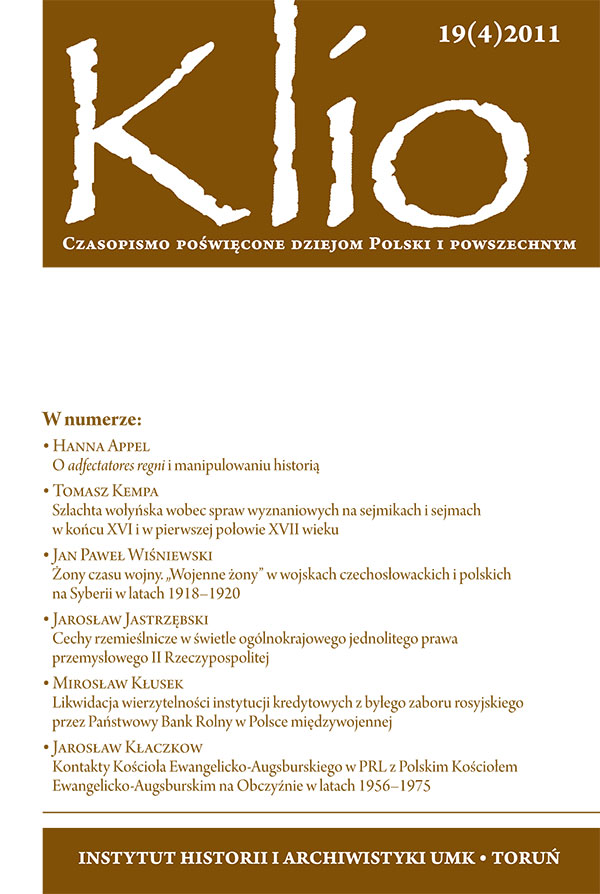Szlachta wołyńska wobec spraw wyznaniowych na sejmikach i sejmach w końcu XVI i w pierwszej połowie XVII wieku
The nobility from Volhynia in relation to religious issues in the Polish-Lithuanian Diet and in local noble conventions in the end of XVIth and in the first half of XVIIth century
Author(s): Tomasz KempaSubject(s): Christian Theology and Religion, Political history, 16th Century, 17th Century, History of Religion
Published by: Wydawnictwo Naukowe Uniwersytetu Mikołaja Kopernika
Keywords: 16th-18th century; Polish-Lithuanian Diet; Volhynia;
Summary/Abstract: Since 1569 Volhynia had belonged to the Grand Duchy of Lithuania, and after Polish-Lithuanian Union in Lublin it was a part of the Polish Crown. There was a magnate domination in the local political elite, but Volhynian nobility ranked strong position too. Although many noblemen were clients of magnates, but majority of them kept their independent religious standpoint. ' is situation was generally accepted by Volhynian magnates, who were in majority Roman Catholics in XVIIth century. Accordingly, on this multi-confessional land, where the Orthodoxes dominated, and strong groups of Protestants, Arians and Catholics (both of rites) were too, the nobility particularly searched a religious compromise. They also aimed to confirm (by the Diet) the Warsaw Confederation (1573), which guaranteed religious liberties to all noblemen in the Polish-Lithuanian Commonwealth. On the other hand within some decades after the Union of Brest (1596) Volhynian nobility was the most consistent with supporting of the Orthodoxes interests.
Journal: Klio. Czasopismo poświęcone dziejom Polski i powszechnym
- Issue Year: 19/2011
- Issue No: 4
- Page Range: 27-54
- Page Count: 28
- Language: Polish

